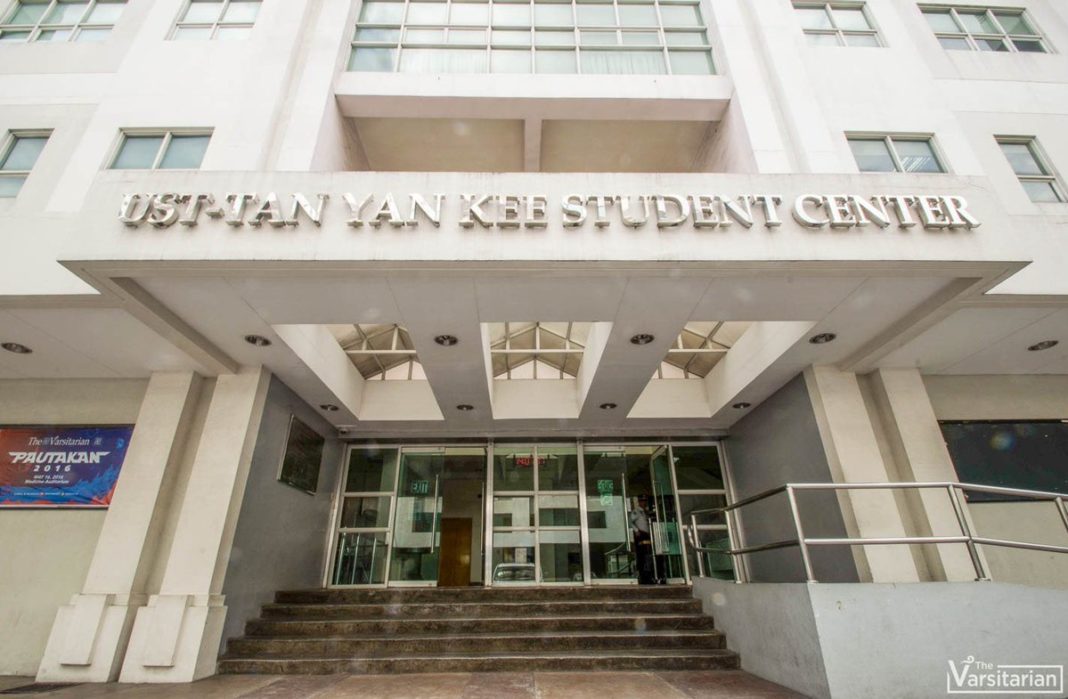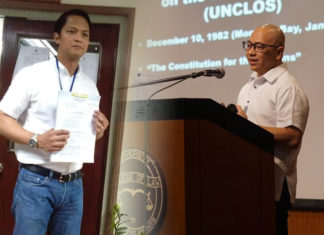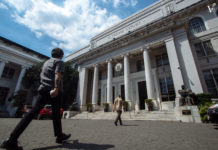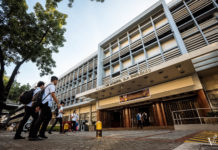 The absence of political parties in the last three student elections has led to a streak of “unopposed candidacies,” a phenomenon that can indicate the diminishing interest of Thomasians in becoming student leaders and declining student-government quality.
The absence of political parties in the last three student elections has led to a streak of “unopposed candidacies,” a phenomenon that can indicate the diminishing interest of Thomasians in becoming student leaders and declining student-government quality.
In 2019, one of the lowest voter turnouts was recorded in the history of any UST student election. Moreover, all candidates ran unopposed except for the secretary. In 2020, the UST Commission on Elections (Comelec) did not grant accreditation to any political party. The application of Lakas Tomasino Coalition (LTC) and Student’s Alliance for the Advancement of Democratic Rights in UST (Stand-UST) were denied by the Comelec because they allegedly did not meet the basic criteria, such as having at least 50 members and two representatives from 15 faculties, colleges, schools, or institutes.
The upcoming Halalan 2023 election nearly broke the trend of scarce candidates, as all positions were filled and two positions had at least two candidates for the first time in three years. However, vice presidential candidate Angelo de la Cruz and secretary candidate Peter Estalilla pulled out of the race, resulting in the remaining independent candidates running uncontested.
The absence of opposition renders the yearly “Tagisan” meaningless, as there is no intellectual discourse happening. As a matter of fact, the candidates only needed to win against “abstain.” Over the past three years, UST’s student politics has witnessed a decrease in the number of candidates, which was caused by the Comelec’s expulsion of political parties from the elections, resulting in uncontested candidacies.
This trend in unopposed candidacies is not new as no political parties are being accredited to join the elections. Despite being discussed in numerous articles and opinion pieces, this issue remains significant each year and is exacerbated by the apparent lack of concern from the student body, UST Comelec, and the Office of Student Affairs.
In 2020, no political parties were able to become candidates because they didn’t meet the required number of members and representatives. The Comelec en banc refused to extend the deadline, citing the “several considerations” that had already been given to the parties. However, the Comelec failed to realize that the procedural requirements were too burdensome for those who wanted to file their Certificate of Candidacies (COCs). The minimum membership and representative counts were difficult to achieve for these parties, as evidenced by the low number of sign-ups. Continuing to reject the accreditation of political parties causes more harm than good, as without them, unopposed candidates will continue to be elected, which negatively impacts student governance. Comelec, the administrative body responsible for overseeing electoral matters in UST, should have understood this.
The decline in political parties and the number of candidates can be attributed to Comelec’s cumbersome accreditation process. Comelec’s stringent requirements have led to the disqualification of potential candidates for minor reasons. Even Nathan Agustin, the current CSC president, almost lost his position due to his failure to provide a temporary transcript of records, which is mandated by the UST Students’ Election Code of 2011. Although Comelec’s intention to impose strict requirements on student politics may have been well-intentioned, it has resulted in a decrease in students’ interest in running for office in the long term.
To encourage more students to participate in student politics, political parties must be reintroduced to the political landscape. Running for office without any reliable financial, moral, or material support can be daunting for students, and political parties can provide this much-needed assistance. Additionally, political parties can help groom and train student leaders, creating a clear line of succession among their members.
The Comelec should consider extending the election season to accommodate more student candidates. This would allow for a more significant number of students to participate and engage in student politics. An extended election season would also give potential candidates more time to prepare and campaign effectively, which can be challenging, especially during the pandemic when most activities are limited to virtual platforms. This would also allow students to become more informed about the candidates and their platforms, thereby encouraging more informed voting.
The Comelec needs to review its rules to revive student politics in UST. When there are only unopposed candidates during campaigns, voters are only exposed to a single perspective, which can lead them to easily adopt the candidates’ views without being critical. The Comelec should realize how crucial it is to bring back political parties to counter the trend of unopposed candidacies and to revive Thomasian involvement in campus democracy.














